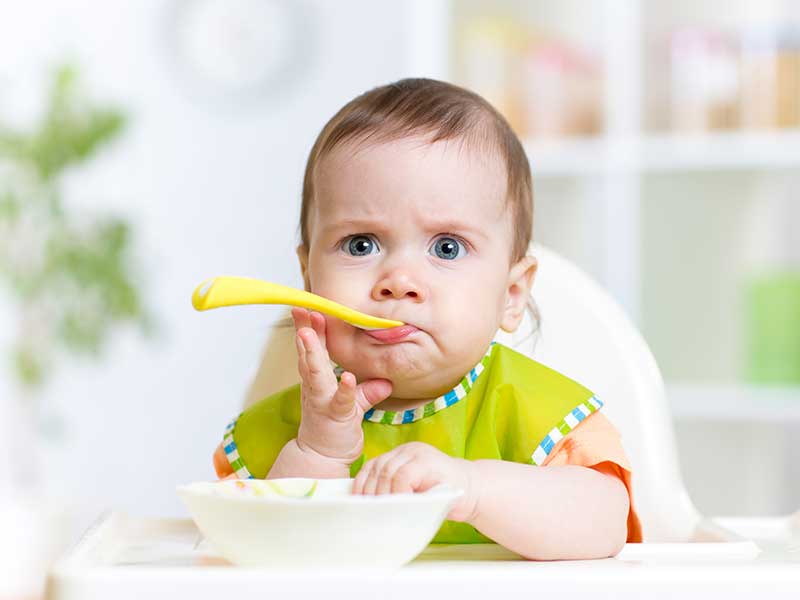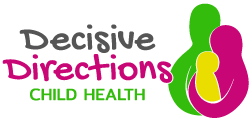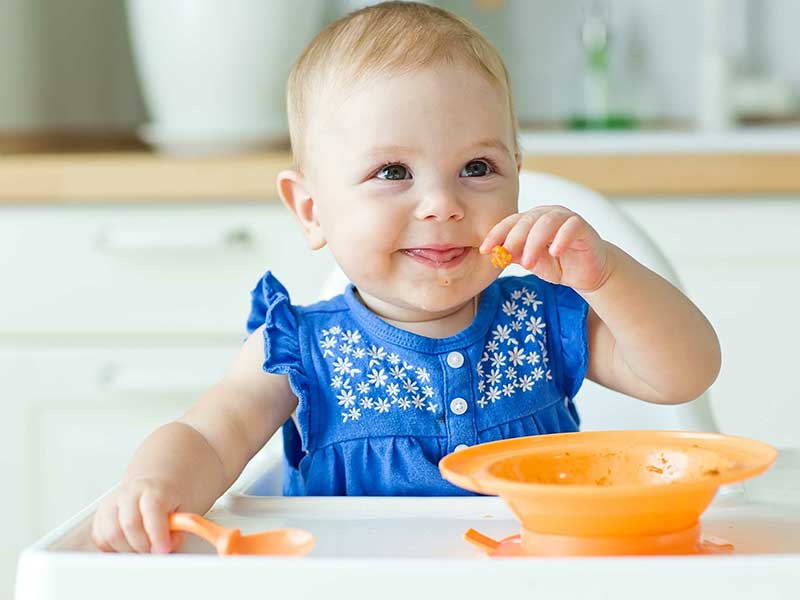When is the right time to start introducing solids?
Key points:
Start to introduce solid foods when your baby shows signs of being ready: around 6 months but not before 4 months.
- First foods should include iron-rich foods. You can introduce any number of foods at a time and in any order
- Keep breastfeeding or using infant formula until your baby is at least 12 months.
- From around 6 months, include foods that might cause allergies.
As babies get older they need solid food to get enough nutrients for growth and development. These essential nutrients include: Iron, Zinc and others.
For the first 6 months babies use iron stored in their bodies from when they were in the womb. They also get some iron from breastmilk and or infant formula. But babies iron stores go down as they grow. By around 6 months, babies need to start having solid food.
Introducing solids is also important for helping babies lean to eat, giving them experience of new tastes and textures from a range of foods. It develops their teeth and jaws and it builds other skills that they’ll need later for language development.
Practical tips for getting started.
Key points
- When you’re first introducing solids, try to keep things calm, relaxed and flexible.
- Be guided by your baby’s interest when offering early foods.
- Be prepared for some mess – this is part of learning!
Mealtime tips for introducing solids
When you’re first introducing solids, meals and mealtimes can be flexible. Here are some tips to help with early meals:
- Choose a time of day when you and your baby are calm, relaxed and not in a rush.
- Wash hands before preparing or serving food. Use clean spoons, bowls and plates – you can wash them with warm soapy water or use the dishwasher.
- Sit your baby on your knee, in a highchair, or somewhere that they’re safe, supported and supervised.
- Give your baby a spoon to practise eating with. You might like to feed your baby with one spoon while they play or practise with another spoon.
- Give your baby pieces of soft food, so baby can learn to feed themselves.

Feeding your baby first foods with a spoon: tips
Here’s how to get started:
- Put a small amount of food onto the front of the spoon.
- Bring the spoon near your baby’s mouth and wait for them to open their mouth.
- Put the spoon into your baby’s mouth, being careful not to push the spoon in too far.
- Give your baby time to suck and/or swallow the food.
- Repeat steps 1-4 until your baby shows signs that they’ve had enough to eat.
If your baby wants to eat more, they might lean towards you and open their mouth for the next spoonful. If your baby has had enough to eat, they might:
- turn their head away
- lose interest or get distracted
- push the spoon away
- clamp their mouth shut.
At first, your baby might not swallow much. This is because eating solids is a skill, and learning new skills takes time. Just try to be patient and go at your baby’s pace.
Also, your baby might find it easier to eat from a soft, flat spoon.
Getting your baby interested in solid foods: tips
By the time your baby is 12 months old, they should be eating the same healthy foods that the rest of the family is eating. Here are some ideas for developing your baby’s interest in new foods after they’ve started on solids:
- Offer your baby tastes of what you’re eating to introduce the flavours of your home-cooked meals. This is also a good time for you to think about the foods you eat and enjoy healthy foods together as a family.
- As your baby starts eating more solids, feed them during family meals each day, if you can. Your baby might be more interested in food if the rest of the family is eating too.
- Be guided by your baby’s interest and appetite levels. It’s normal for your baby’s appetite to vary from day to day.
- Talk with your baby about the food they’re eating – what it is, what colour it is, how it tastes, where it grows and how it was cooked.
- If your baby refuses a new food, just offer it again tomorrow. Sometimes babies and children need to try new foods more than 10 times before they accept them.
It’s common for babies to make funny faces when they try new foods. Funny faces can mean different things. For example, your baby might make a funny face when they’re surprised, confused or unsure about a new taste.

